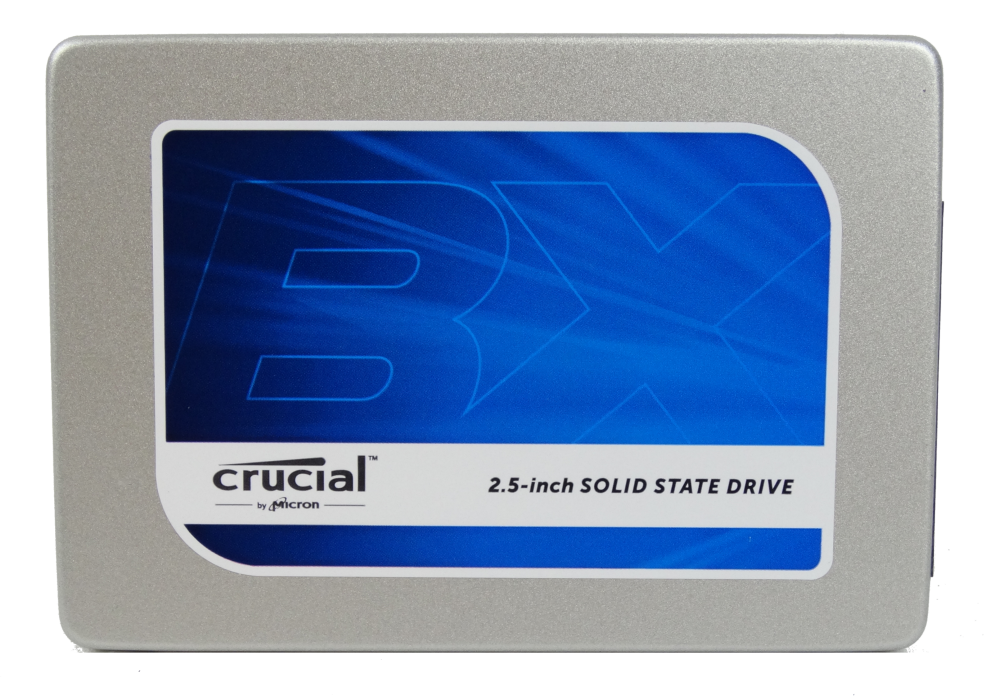Crucial BX100 1TB SSD Review
Why you can trust Tom's Hardware
Final Thoughts
For years, all we ever cared about from our solid-state drives was their performance. Many companies attempted to deliver lower-cost products, some with six or seven overlapping drives selling at the same time. That strategy proved difficult to maintain, causing end-users a lot of pain. After all, the most expensive component in a SSD is its flash. Using lower-quality flash helps bring down cost. But if it also translates to higher failure rates, that's how reputations become tarnished.
Today's low-cost products are a bit different. Some companies continue using lower-quality flash and gambling with their reputation (and your data). That's just not an option for Crucial, though. As a subsidiary of Lexar, parent company of Micron, Crucial has access to the highest-quality flash before competing drive vendors can buy it up.
Silicon Motion's SM2246EN controller allows Crucial to save a little money compared to the Marvell processors found elsewhere in the company's SSD portfolio. The cheaper controller is missing advanced features like DevSlp support and hardware-based encryption. But at the same time, the BX100 family's overall cost is lower, too. The SM2246EN handles sequential data well and struggles with random operations. As such, you'd have a difficult time finding a secondary drive in this price range to transfer and hold large media files that is better than the BX100.
We could certainly recommend faster options for primary drives, but they're going to be more expensive. In this price range, Muskin's Reactor 1TB costs a little less, though it lacks the premium Micron flash and Storage Executive software. That drive recently made our Best SSDs for the Money list due to its great value, so don't be surprised if Crucial's BX100 displaces it in the future.
Enthusiasts who install software when they build new PCs, but then mainly read data from their SSD should find the 1TB BX100 1TB to be ample. It mitigates the latency of a mechanical drive in both sequential and random transfers. When it has enough idle time to keep its pages clean, the SSD performs nearly as well as some of the top models out there. Of course, heavy I/O causes the BX100's performance to drop quite a bit. You'll still enjoy an experience that beats conventional hard disks, though perhaps at that point it'd be wise to consider something with an emulated SLC cache layer and better wear-leveling algorithms.
Get Tom's Hardware's best news and in-depth reviews, straight to your inbox.

Chris Ramseyer was a senior contributing editor for Tom's Hardware. He tested and reviewed consumer storage.
-
salgado18 My only issue with the drive is endurance. Because a secondary drive for storing data is meant to be the safe repository, wouldn't a hard drive be a better match, even with the lower performance?Reply -
logainofhades You can currently get an 850 evo for less than a BX 100. http://pcpartpicker.com/parts/compare/crucial-internal-hard-drive-ct1000bx100ssd1%2Csamsung-internal-hard-drive-mz75e1t0bam/Reply -
MrMusAddict "As a subsidiary of Lexar, parent company of Micron, Crucial has access to the highest-quality flash before competing drive vendors can buy it up."Reply
You have it backwards there. It should read:
"As a subsidiary of Micron, parent company of Lexar..." -
Chris Droste i Love my MX100 512GB but i dunno if I'd go anything cheaper than that unless it's older/proven like a Samsung 830 or a Crucial m.4. i mean, $210 for 512GB is really damn sweet for a +90k IOps driveReply -
dachiesa I grabbed a $85 sale for the 256GB one and upgraded my 120GB Kingston SSDNOW to this and I am very happy to have that extra space (the 120GB Kingston was 60 when I bought it last summer)Reply -
mczak1 The last page is saying "The cheaper controller is missing advanced features like DevSlp support and hardware-based encryption" - that is however untrue as far as the encryption is concerned (look it up on SiliconMotions site). I guess though Crucial decided to not make it available so there's some feature difference to the MX series. There could of course be some problems with it as well, but other SSDs based on the same controller offer hardware based encryption.Reply -
mapesdhs Re the 128KB Sequential Write Performance graph - please stop using graphsReply
that do not have a zero origin. They are thoroughly visually misleading. What's
the point of using a graph at all if the bars' relative sizes are so different because
of a non-zero origin? The line graph makes it obvious the BX100 is slower but
not that much slower than the upper end models, whereas the bar graph at
first looks far worse. Also, the other graphs have not been done in the same way.
Best not to use non-zero-origin graphs at all.
Ian.
-
SinxarKnights ReplyTime to move to a 1Tb SSD from a 256gb one I have now, this may be the one get.
I got the MX100 256GB and simply love it. I would like to get this and just use it for storage. I mean it would last pretty much forever since it isn't mechanical and the data isn't constantly being written to it.
